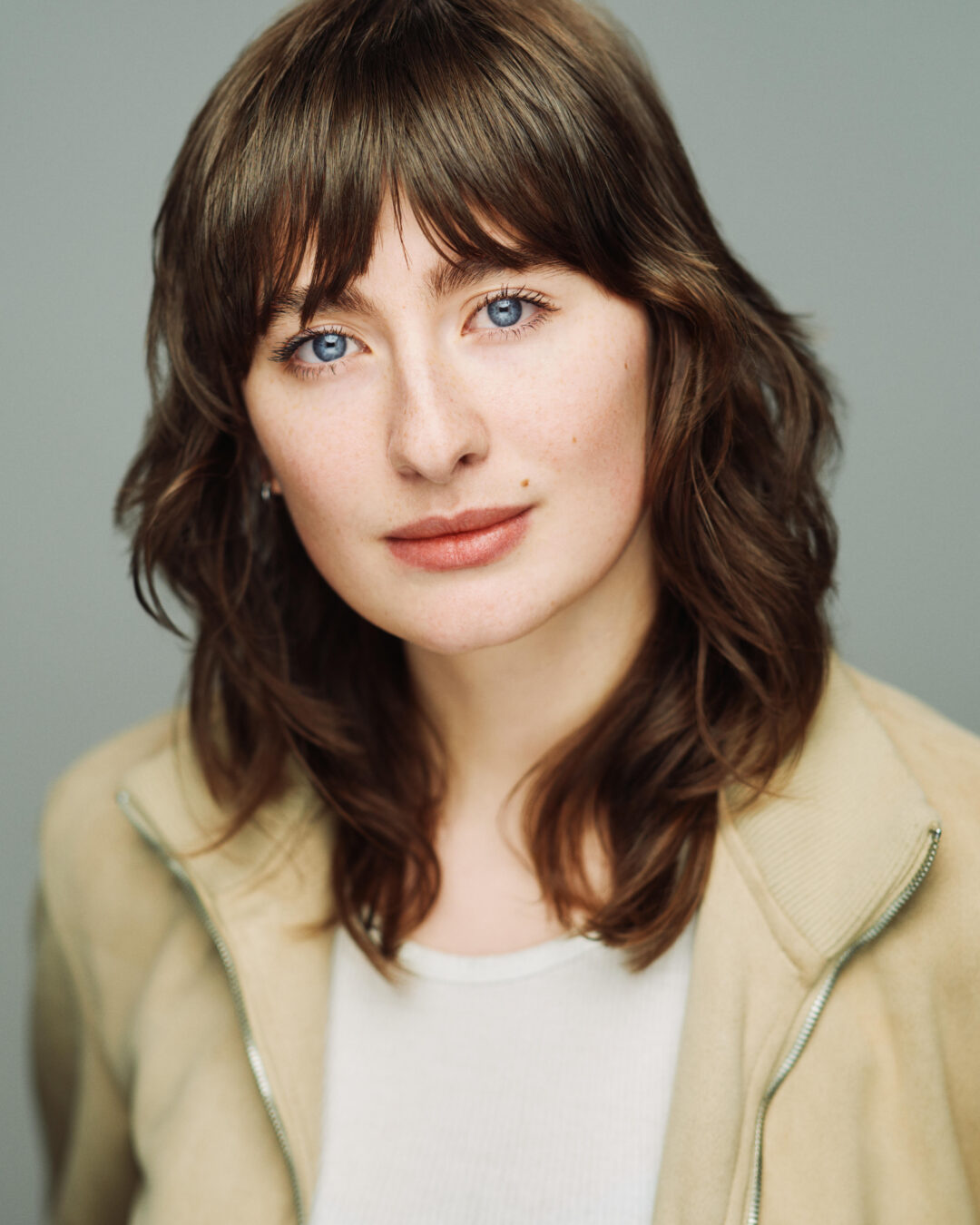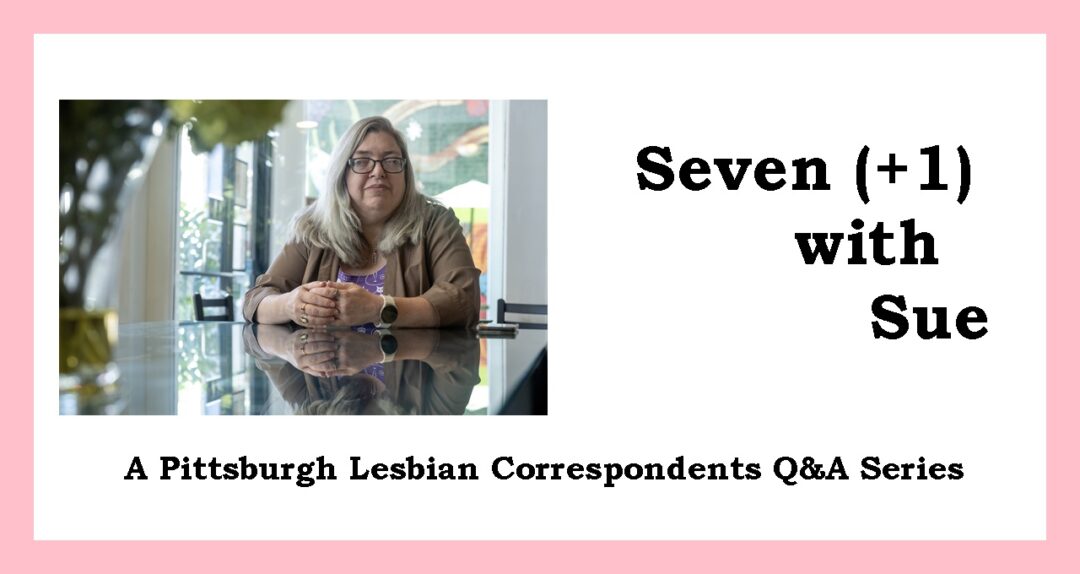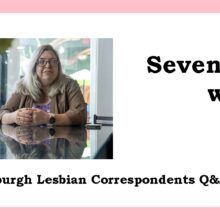
Every time I answer a question about Constantine’s life and desires, another seven are created and I continue to find work in the work. ~ Phoebe Lloyd
The hallway of a local theater group is covered with seemingly hundreds of framed playbills, stretching back decades. Each time I pass by, craning my neck to make out the details, I’m awed by the history and simultaneously filled with regret at all of the great shows I’ll never see. Especially the classics. Even more so, modern adaptations of the classics. One of the names that whisks through my mind during that brief hallway is Anton Chekhov (1860-1904).
When I learned that Quantum Theater is bringing a queer adaptation of Chekhov’s play ‘The Seagull’ to Pittsburgh, I was almost stunned. A queer adaptation of a Chekhov play staged outside by an actual lake. A nice bookend to an adapted version of ‘Miss Julie’ PICT brought to the Carnegie Stage in the spring. But more sprawling. Note this adaptation is titled simply Seagull.
To begin our exploration of this performance, I created a ‘Seven (+1) with Sue’ Q&A for actor Phoebe Lloyd who plays the queer character, Constantine. Phoebe is a CMU alum so has invaluable perspective on Pittsburgh and our arts community.
It is important to note that this past week CMU hosted a horrifying energy conference, that squashed free speech and freedom of expression at every turn. That is absolutely a reconciliation that alumni have to address. I didn’t know I was interviewing Phoebe or I would have asked. It is uncomfortable to make these things messy, but none of us can afford to let opportunities to hold up a mirror pass us by. I’m a Pitt alumnus so I have similar ethical obligations. And yes this response of the government and CMU to free speech and assembly just blocks away from the setting for this Seagull production makes it more salient. Very much so.
It is also with sadness that I tip my hat to the theater vivant who helped me craft this Q&A series, Mr. Brian Edward. Brian died unexpectedly this past week. I don’t know what he thought of Checkhov but I’m going to ask!
Phoebe shares tantalizing insight into the production. So get out your picnic blankets, grab your theater bestie, and join me in diving into this adapted classic.
Name: Phoebe Lloyd
Pronouns: they/them
Describe your connection to the production: I am playing Constantine in Joanie Schultz’s adaptation of The Seagull.
Tell us about your connection to or your first impression of Pittsburgh.
I first visited Pittsburgh after I got into Carnegie Mellon’s acting program. It was spring of 2019 and the trees were overflowing with flowers. I liked all the hills and the way the houses reminded me of Massachusetts where I grew up. I spent the next four years getting to know the city. Especially in the rain and the fall, it feels hushed here, almost soft, like an early morning. Now that I live in Brooklyn, I’m always eager to come back and visit. I think it’s an underrated city.
How does your work on this production change the way you look at the world?
I am still riding the wave of what this particular project can show me about the world. I see the audience as the third voice in the conversation happening on stage. We are still a week from our first preview, so in a way, there’s a character who hasn’t appeared in the story yet. Once they arrive, I think I will learn a lot about how people interact with humor when faced with tragedy.
From the start of the process, I’ve had to question my own pre-conceived notions and personal feelings around suicide. My castmate Julia, who plays Nina, wrote a beautiful piece that speaks to me about the themes of death in the play, “[As a society] we are already enlightened enough to recognize and feel badly about the harm that we have done, but we’re stuck. The energy is stuck. Stuck in the death fantasy that contaminates everyone’s imagination. And because we are stuck, we ‘can’t get our shit together.’ Because we are stuck, we don’t know how to resist complacency, and because we don’t know how to resist complacency we wish for our own demise, which will only bring death to others. It is a vicious feedback loop. It is a self-fulfilling prophecy.” You can visit her blog to read the full piece: https://underdog-dreamer.ghost.io/
There are real barriers to the arts – time, money, etc. But there’s also the matter of perception, that one must dress a certain way, or know the culture of their local arts community or in some way must not be ‘othered’ to attend. How does the creative community collectively lower these barriers so people actually learn if you like opera, ballet, plays, or symphonic music as a few examples?
I think, and I am really no expert here, that it’s not just a matter of opening the door to people, but also inviting them in to take up space and make themselves at home. The more kinds of art being shown, the more perspectives we can all look through and experience together, the more empathy we can have for each other, the stronger the community can be. Simply put it’s a matter of putting resources in the right place and uplifting new voices.
Tell us about an under-appreciated or underutilized cultural resource in this region.
Our stage manager thinks there should be buses on the rivers. My cast mate said the libraries are vast with endless possibilities. My friend, who has lived here his whole life, said the Manchester Craftsman’s Guild. From what I can see Pittsburgh has many incredible small theater companies that keep the region alive: Quantum, Barebones, and New Product Company, for example. I believe with more resources and space afforded to companies like these, and even smaller organizations, the work that could be made would be a very positive presence in the community.
With whom in the Pittsburgh region would you like to collaborate and why?
While I was at CMU, I was obsessed with the work of The Pillow Project. I would go to Second Saturday whenever I could and always walked away feeling inspired. I love the space upstairs. I would love to devise a piece of movement theater in that space that would incorporate the super interesting, evocative camera tracking and echoing technology that The Pillow Project has spent so long refining.

You’ve engaged in multiple classics in your career. What drew you to Chekhov and a same sex love story?
I believe in work that centers queer characters, because the queer theater I saw growing up made me a better, more honest, happier person. I was drawn to this particular project by Joanie Schultz’s beautiful work – she is a deft and brilliant director with a sharp sense of humor – and by the mystique of the play itself which has a fascinating history. I love that when the play was originally put up it was panned by critics and called a massive failure. I identify with the value of a good failure. I think The Seagull continues to be adapted and produced because it is a shockingly vast world to live in. Every time I answer a question about Constantine’s life and desires, another seven are created and I continue to find work in the work.
This production is literally next to a pond with opportunities to bring a blanket and enjoy picnics from Bistro to Go. Does this outdoor experience bring the audience into the atmosphere of the play or reflect the way the arts were performed in Chekov’s era?
Russians in the 1800’s loved to picnic! They’d make their servants carry all the dining room furniture and the Samovar onto the lawn just for the vibes. There are pictures of this stuff, you can’t make it up.
Which of Chekov’s original works would you suggest to someone who would like to learn more?
Watch Andrew Scott do Uncle Vanya on National Theater Live, and I think you will see Chekov’s language beautifully.
Thank you, Phoebe.
Seagull is produced by Quantum Theater based on an adaptation by director Joanie Schultz. It runs July 25 – August 17, 2025 on the campus of Chatham University in an outdoor setting near the campus lake. There are Q&A’s, talk backs, glimpses behind the scenes, and even picnic boxes to make this theater to remember. Tickets start at $20.
Seven (+1) with Sue is one of our favorite Q&A series – a quick dive into the local arts world. (+1) is a nod to my need for a companion when I attend a performance and an acknowledgment of the need for universal accessibility to the arts. If you’d like me to craft a Q&A for your production, email pghlesbianblog@gmail.com.





